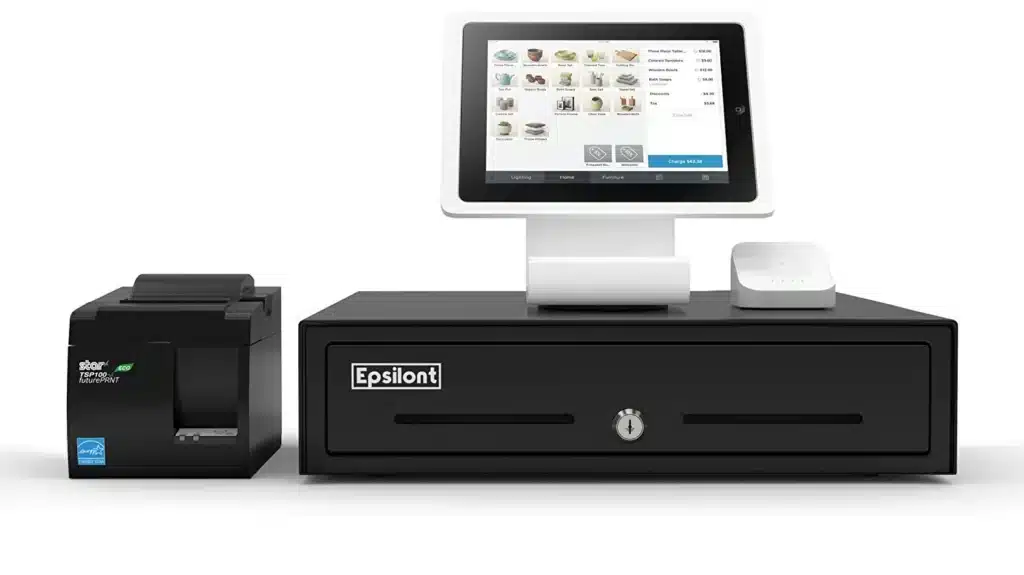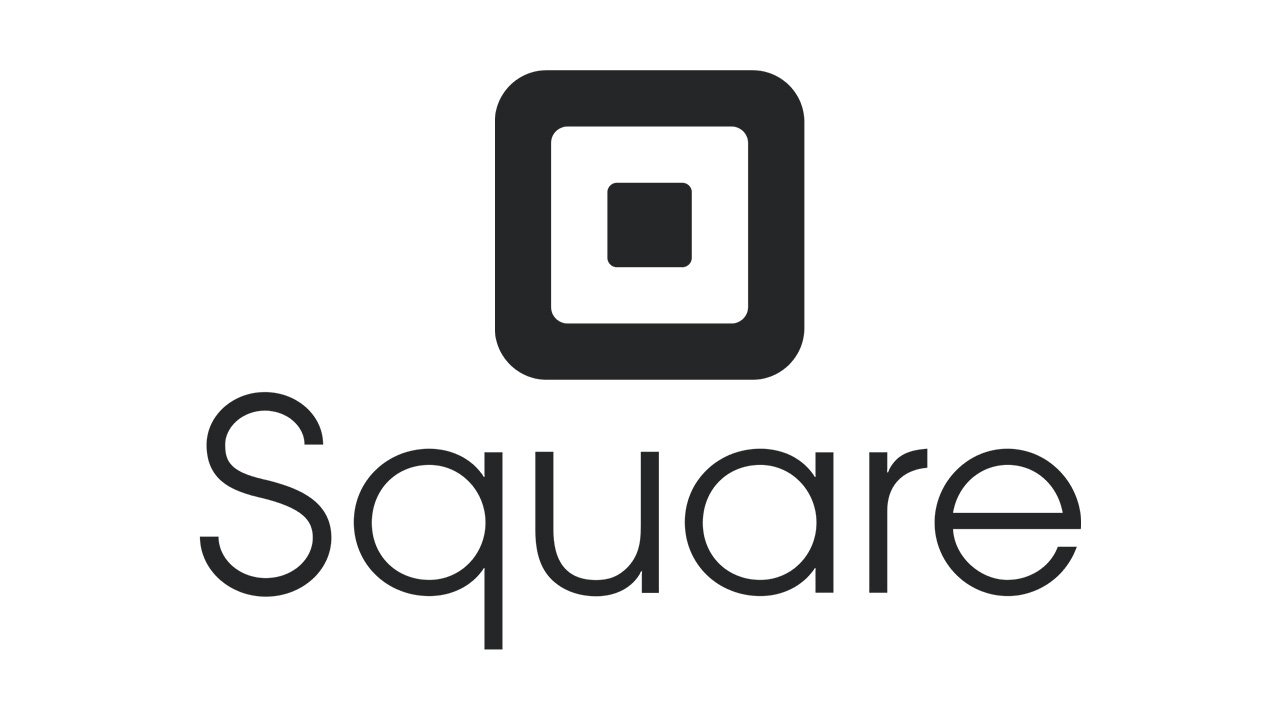
Our Verdict
Square POS offers a user-friendly and cost-effective solution for small to medium-sized businesses, providing essential features such as payment processing, inventory management, and sales analytics. Its intuitive interface and straightforward setup make it accessible to businesses of all sizes, while its affordable pricing structure and transparent fee system appeal to budget-conscious entrepreneurs.
However, businesses requiring more advanced features or extensive customer support may find Square’s offerings somewhat limited compared to other more comprehensive POS solutions on the market.

Processing: 2.6% plus 10¢ per most transactions
Pros
- Simple, user-friendly interface
- Versatile with mobile hardware
- Streamlined self-service account initiation
Cons
- Lacking payment processing flexibility
- Less in-depth reporting and analytics
Full Square POS Review
Most startup retailers seek a straightforward, user-friendly POS to simplify their everyday workflow. In many ways, Square POS is a solid solution with minimal onboarding requirements and a turnkey setup.
Nonetheless, a thorough Square review shows that, while the platform offers an array of basic tools for smaller brick-and-mortar businesses, there are still some limitations to consider. For example, most of their setup offers no human interaction for new users.
In addition, their built-in payment processing does not allow retailers to shop around for more competitive rates. Finally, some advanced inventory management features are not as dynamic as other alternatives in the field.
Payment processors
giving you trouble?
We won’t. KORONA POS is not a payment processor. That means we’ll always find the best payment provider for your business’s needs.
Read on for a more in-depth review and explanation of what this provider offers and whether it is a good fit for your retail business.
What Business Types Is Square POS For?
- Small retail stores: Square’s user-friendly interface and affordable pricing make it an excellent choice for small retail businesses. However, businesses with complex inventory needs may find Square’s inventory management features somewhat lacking.
- Food & beverage: Square is popular among cafes, food trucks, and small restaurants due to its seamless integration with kitchen printers and flexible menu customization. This makes it a viable option as a quick service POS system.
- Service-based businesses: Square is well-suited for service-based businesses such as salons, spas, and consulting firms, offering appointment scheduling and invoicing features that streamline operations and enhance customer experience. Its interface enables businesses to manage appointments, track client preferences, and send automated reminders efficiently.
- Pop-up shops and events: Square’s mobility and versatility make it ideal for pop-up shops, markets, and events, enabling businesses to accept payments anywhere. However, businesses participating in high-volume events may encounter limitations in processing transactions efficiently due to potential network connectivity issues.
What is Square POS Best For?
- Startup businesses who want simplicity: Square provides an intuitive platform that streamlines payment processing, inventory management, and analytics without the complexity often associated with many other POS systems.
- Flexibility with mobile devices: Small-scale retailers can run Square with mobile devices like smartphones and tablets, making it ideal for on-the-go operations.
- Retailers who want integrated payments: With Square, every aspect of payment processing is built in. While this may streamline checkout processes, it restricts retailers to higher processing fees.
Square POS Pricing
Free
$0/mo
- In-person: 2.6% + 10¢ per transaction
- Online: 2.9% + 30 cents
Plus
$89/mo
- In-person: 2.5% + 10¢ per transaction
- Online: 2.9% + 30 cents
Premium
Custom
- Individualized rates
- Must do over $250K in sales per year
Additional Fees
Manually entered
- When you manually key in your customer’s card details or use a card on file, the fees increase to 3.5% + 15¢ per transaction.
Invoices
- 3.3% + 30¢ per transaction if an invoice is required
Square POS Top Features
Feature | Description |
Cloud Based | Square is a cloud-based solution. Your data is stored offsite and all of your updates will be automatic. |
Payment Processing | Square has their own built in payment processing. Accept various payment methods including credit cards, debit cards, and contactless payments. |
Inventory Management | Allows tracking of inventory levels, setting up low-stock alerts, and managing item variations. Square has tools for barcode labeling, generating reports, and importing product lists from spreadsheets. |
Sales Analytics | Provides insights into sales trends, customer behavior, and employee performance. With their software, you can break down complicated sales data into useful information to drive decisions for marketing and merchandising. |
Customer Management | Square has solid CRM capabilities for creating customer profiles, tracking purchase history, and sending personalized offers. The POS provides a platform for email marketing, SMS outreach, and customer loyalty. |
Employee Management | The "Team Management" features help with employee permissions, tracking hours worked, and generating payroll reports. You can also custom control access and permissions to individuals. |
Customizable Settings | Square offer customization options for receipts, taxes, and discounts to fit specific business needs. The dashboard widgets are also customizable to cater to each shop. |
Offline Mode | Can process transactions even when the internet connection is temporarily unavailable. Once reconnected to internet within 24 hours, the payments will go through. |
Integrations | Integrates with various third-party apps such as accounting software, eCommerce platforms, and dozens more. These range widely and help with automation across many different verticals. |
Secure Transactions | Ensures secure transactions through encryption and compliance with PCI Data Security Standards. Also offers 2-step verification and other anti-fraud measures. |
Pros of Square POS
- User-friendly interface
Square POS features an intuitive interface, facilitating quick onboarding and ease of use for staff members of all skill levels.
- Affordable pricing structure
With transparent pricing and no long-term contracts, Square POS offers cost-effective solutions suitable for businesses of all sizes, especially beneficial for startups and small businesses with limited budgets.
- Mobile compatibility
Square’s compatibility with mobile devices enables businesses to process transactions on smartphones or tablets, providing flexibility for on-the-go sales environments such as pop-up shops and events.
- Comprehensive reporting and analytics
Square POS provides adequate sales reports and analytics, empowering businesses to gain insights into their performance, track sales trends, and make informed decisions to drive growth.
- Inventory management
Square POS offers basic inventory management features, helping businesses track stock levels, manage products, and receive low-stock alerts to avoid stockouts.
- Integrated ecosystem
Square POS integrates with other business tools and services such as accounting software, payroll systems, and eCommerce. This asset enhances efficiency through automation and data synchronization across platforms.
Cons of Square POS
- Customers complain of Square withholding funds
When considering Square as a point of sale system, one of the biggest things to be aware of is its fund-holding policies. There is no traditional underwriter process, and accounts can be opened without human interaction.
Although this is beneficial in terms of efficiency and avoiding pushy salespeople, there is a risk that the first time you receive significant funds or a one-time larger payment, Square can put your money on hold until they deem it safe.
- Higher fees on sales
As mentioned, Square POS’s flat rate pricing structure can become costly as businesses scale up and grow. The system charges a higher percentage on transactions than many other payment processing solutions.
For businesses that process high volumes of transactions, these fees can add up quickly.
- Lack of customer support and service
Numerous complaints about Square’s lack of support and customer service have been made public. Square POS does not offer phone support (and only limited chat support for their basic plan), which can be a significant issue for businesses that experience technical difficulties.
While the company does offer email support, response times can be slow, leaving businesses without a solution for hours or even days.
The more I learn to use KORONA POS, and with the help of awesome customer support, the more I believe this POS system could be a very good fit for many types of businesses out there. What I love the most about this software is the 24/7 customer service and reporting function which are very easy to use.
-Kevin L.
Square POS Frequently Asked Questions
- Is Square a good payment system?
Square is widely regarded as a reliable and effective payment system, offering businesses a user-friendly platform to accept various forms of payment. Its intuitive interface, seamless integration with mobile devices, and comprehensive reporting capabilities make it a popular choice among small to medium-sized businesses seeking simplicity and flexibility in managing transactions. However, businesses with complex needs or high transaction volumes may have limitations in Square’s features, processing fees, and customer support.
- What is the downside of Square?
One downside of Square is its relatively limited customer support options, primarily relying on email, online forums, and social media for assistance, which may not always provide immediate resolutions for urgent issues. Additionally, while Square offers basic inventory management features, businesses with complex needs may find these capabilities lacking compared to more specialized systems. Finally, some users have reported occasional account holds or sudden terminations by Square, highlighting potential risks for businesses reliant on the platform for payment processing.
- How much does Square cost per month?
Square’s pricing varies based on the specific products and services businesses use. For its basic payment processing service, Square charges a flat fee per transaction, typically around 2.6% + 10¢ for in-person transactions and 2.9% + 30¢ for online transactions. However, Square also offers additional services such as Square for Retail or Square Appointments, which may incur separate monthly subscription fees depending on the features required by the business.
Conclusion
In conclusion, Square POS stands out as a versatile and adaptable solution for most small business retailers. Its user-friendly interface, seamless integration with eCommerce, and flexible hardware options make it a top choice for retailers and service providers alike.
Nonetheless, there may be some limitations in advanced features and customer support. For those seeking a retail point of sale with a more comprehensive inventory management platform and advanced in-house technical support, KORONA POS is a great option. Click the link below to learn more about KORONA POS by signing up for a free trial with zero obligations.














